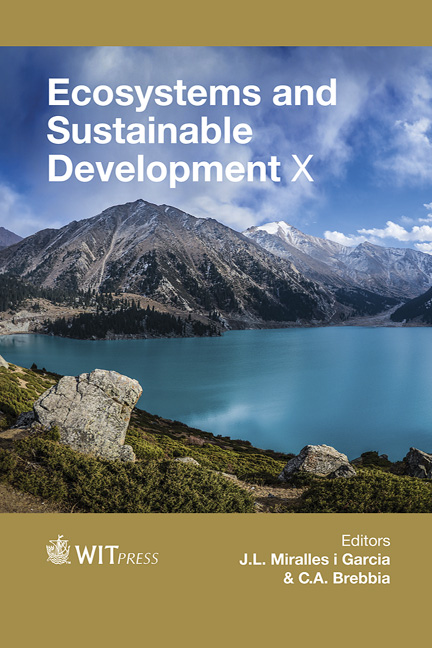Enhancing The Traditional Mediterranean Irrigation Agroecosystems: A Case Study Of The Rivers Túria And Júcar (Valencia, Spain)
Price
Free (open access)
Transaction
Volume
192
Pages
10
Page Range
45 - 54
Published
2015
Size
631 kb
Paper DOI
10.2495/ECO150051
Copyright
WIT Press
Author(s)
I. Martínez-Sanchis, M. J. Viñals
Abstract
Since ancient times, agriculture has had a significant impact on ecosystems in the Mediterranean basin. Current cultural landscapes are a result of these historical activities and they are sites where traditional human knowledge is reflected in both tangible and intangible heritage assets.
The use of water for agriculture has always involved an understanding of the geographic space, hydrology management practices, and the engineering design of hydraulic devices such as small dams, weirs, irrigation channels, pools, or water mills, among other things. The intangible heritage is also especially relevant since the historical irrigation system provides the landscape with a structure characterized by orality, best practices, and traditional environmental knowledge.
However, this heritage is at risk due to its wide territorial spread and in some cases loss of functionality. Urbanization, unsuitable land usage and loss of production are also factors that can be mentioned.
This paper focuses on analysing the influence that the tangible and intangible heritage and the landscapes linked to the Rivers Júcar and Túria have on local development. The results indicate the existence of several resources with great cultural and recreational potential. They also continue to be key elements in the functioning of existing historical irrigation systems and, for this reason, these irrigation systems can still be considered fundamental drivers of the current sustainable development.
Keywords
territorial management, cultural landscape, hydraulic heritage, traditional irrigation system





